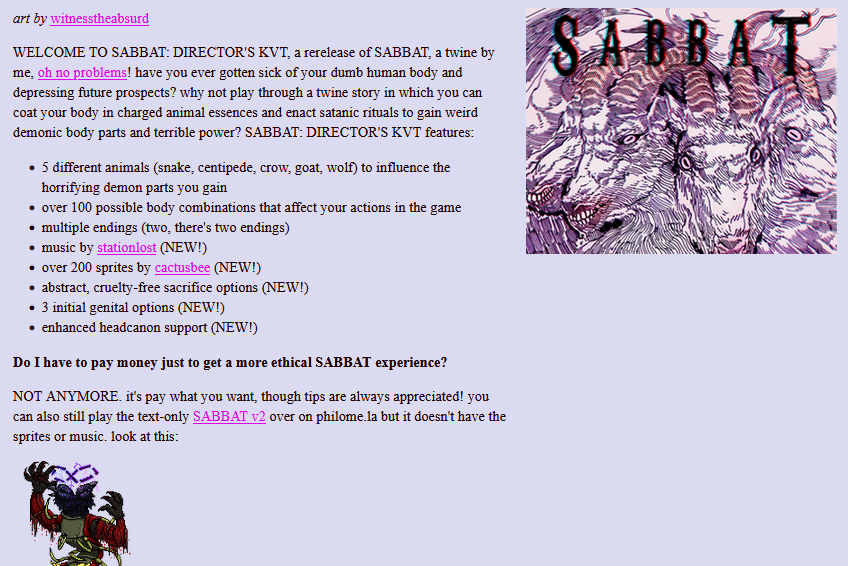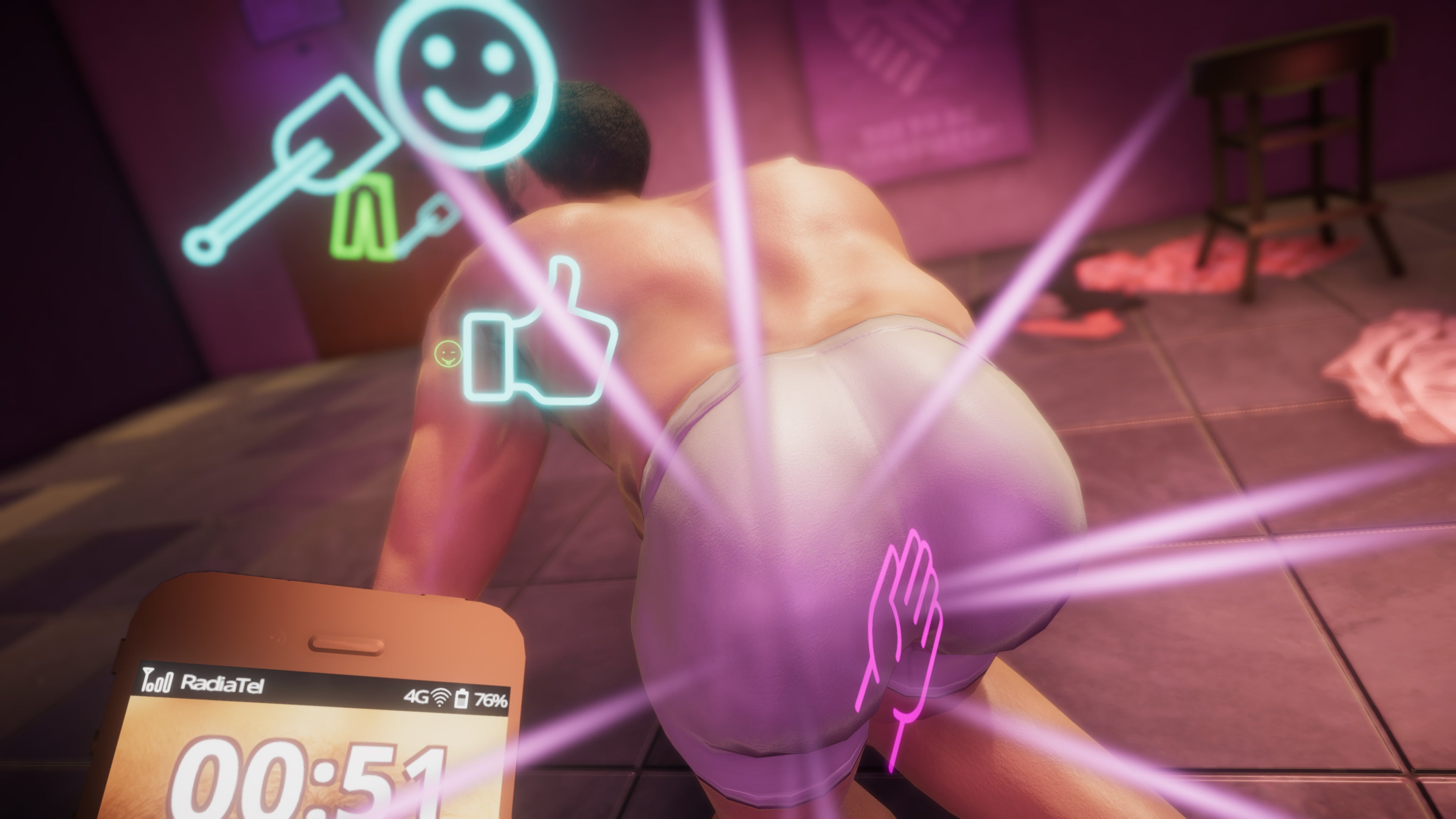Table of Contents
A critically lauded horror game about the consequences of rape was among more than 20,000 titles caught up in a sweeping purge of adult video games from online storefronts.
The furor started in April when an Australian anti-porn group called Collective Shout asked the video game marketplaces Steam and Itch.io to ban an incest-themed rape simulator game.
The game No Mercy urged players to “never take ‘no’ for an answer” and caused an international outcry, with just under 70,000 people signing an online petition to ban it. It was swiftly blocked from sale in Australia, the UK and Canada; banned by Itch; and removed from Steam by its creators.
Yet the backlash to that one extreme game caused thousands of others with general themes of sex, gender and LGTBQ experiences to also be removed — but not by any governmental action. The censorship came from the marketplace itself, due to pressure from payment providers such as Mastercard, Visa, PayPal and Stripe — some of which allegedly threatened to stop processing transactions altogether if swift action wasn’t taken.
“The situation developed rapidly, and we had to act urgently,” wrote Itch founder Leaf Corcoran on July 28. «Unfortunately, this meant it was not realistic to provide creators with advance notice before making this change.»
And as a result, many video game users and creators saw the campaign as unfairly targeting anything that is beyond the mainstream, with gaming often a creative outlet for people to explore complicated topics.
“For many LGBTQ+ developers, Itch is one of the very few places left on the internet for us to express our gender and sexuality,” game developer and scholar Robert Yang, whose erotic triptych Radiator 2 was apparently deindexed, told The Independent.
According to veteran digital rights activist Rainey Reitman, there is a longstanding pattern of financial censorship by payment providers — who have every reason to yield to such campaigns and little impetus to resist.
«These are companies that specialize in securing payments and preventing fraud,” Reitman, author of the upcoming book Transaction Denied: Big Finance’s Power to Punish Speech, told The Independent.
“They don’t have the expertise or the incentives to consider the societal and ethical ramifications of silencing certain voices and certain types of content.”

‘It was critical that we acted as fast as possible’
The spark for this crackdown came in May, when Collective Shout — a relatively small anti-porn group little known outside Australia — turned its attention to payment companies after allegedly being ignored by Steam.
Though No Mercy had been pulled, the group said it found “hundreds” of other such games, many of which were «too distressing to make public».
On July 10 the group wrote an open letter asking payment companies to suspend all transactions on Steam and Itch until things changed. It was ambiguous about what exactly should be censored, referring sometimes to games that «endorsed» sexual violence and sometimes to games that «featured» or were «themed» after it.
«There is of course a big difference between merely depicting something, or exploring a topic for the purpose of social commentary or critique, and promoting or endorsing it,» Collective Shout’s campaign manager Caitlin Roper told The Independent.
«Our objection is to content that promotes sexualized violence, primarily against women… the intention was never to target NSFW content generally, or LGBT+ artists and creators.»

But, speaking to the gaming news site Aftermath, Itch founder Corcoran said Visa had issued a «policy notice» against the marketplace — which focuses on indie and arthouse games — that made middlemen such as PayPal and Stripe question doing business with it.
Paypal and Stripe wouldn’t comment on individual companies, but Stripe noted that it does not support adult content. Visa did not respond to a request for comment.
Meanwhile, Steam’s parent company, Valve, alleged that Mastercard had leaned on its (unnamed) payment middlemen to demand that Steam change its existing rules — although Mastercard gave a different account.
Steam’s purge was relatively small, according to the tracking service SteamDB. Most banned games were explicitly pornographic and incest-themed, with titles such as Interactive Sex: Mom Son Incest and Sex Adventures: Incest Family.
But Itch is a more hands-off platform, with less ability to judge case by case, so its purge was far less discriminate. The industry newsletter Game File reported that more than 20,000 games were unable to be found.
Among the casualties was Mouthwashing, a widely praised indie horror game about the aftermath of sexual abuse aboard a space freighter, and SABBAT, a 2013 text adventure in which the player can transform into a weird giant monster creature and destroy capitalism.

By July 31, all free NSFW games had been re-indexed, but Itch said it was still in talks about reinstating paid games.
“If Itch.io had been moderating its platform properly, then these games would never have been impacted,» Roper said.
Still, some gamers and creators are suspicious of Collective Shout’s politics, given its reported conservative connections.
“The right wing already routinely bans us and chases us off all the other websites! So [this] really does feel personal and anti-LGBTQ,” game developer Yang said.
“Sexuality is complicated, but Collective Shout and their right-wing allies exploit that complexity in bad faith. Do not believe them.”
Payment companies have every reason to censor — and scarce motive not to
To those who follow these payment companies, the speed and scale of the situation was unusual but not unprecedented.
«I have heard of other situations in which websites received a very short window to address the concerns of the payment company,» said Reitman,
In 2022, a nude yoga website called True Naked Yoga was suddenly given «mere days» by Stripe to find a new payment processor, after operating for years without any problems, says Reitman, who founded the Financial Censorship Project.
Since 9/11, financial institutions have increasingly been held responsible for stopping illegal or objectionable activity. Though initially targeted at money laundering and terrorist financing, these efforts have gradually expanded, with payment processors claiming broad discretion to refuse any legal transaction that might damage their brand.

«Financial companies don’t get a lot of benefit out of any one account,» Reitman says. «It’s often cheaper to close an account that’s garnering attention than to pay the staff time to resolve issues with it,» Reitman said.
This is exacerbated by the role of reputation management companies that scour headlines and online marketplaces to flag risky e content.
But the great adult videogame purge of 2025 shows reputational damage goes both ways. Payment companies have been swamped by calls from angry gamers, reportedly leading to desperate tactics such as hanging up on callers immediately or putting them on hold for 17 hours.
«Financial companies shouldn’t be in the position of reviewing and censoring online speech,” Reitman says. “They don’t have the expertise to do it, there is no transparency or accountability around their decisions, and nobody elected them to be the arbiters of morality online.»

